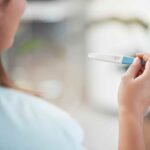It was another busy month for the microbiome space in October with multiple deals reported in probiotics, prebiotics, microbiome therapeutics and related biotech areas.
Microbiome Post brings you our highlights of the most important news and investments taking place last month:
Australian bioinformatics and metagenomic sequencing specialists Microba will partner with Boston-based biotech Holobiome to develop new therapies for depression. Funding from the Queensland Government’s Biomedical Voucher Program will be used to examine the impact of specific gut bacteria in lab models of depression and to analyse clinical samples. The collaboration will support advancement of Holobiome’s existing microbiome products in development, in addition to providing a better mechanistic understanding of the link between the gut microbiome and disorders of the brain, like depression.
Federation Bio, a microbial therapeutics company targeting diseases in which the human microbiome can play a curative role, closed a $50 million (USD) Series A financing round and announced an expanded leadership team. The company’s approach to the microbiome includes combining ‘an unprecedented number’ of strains into highly diverse consortia – that are in some cases optimised with genetically engineered bacteria – to target the immune system. Horizons Ventures led the Series A financing, joined by existing investors Venrock and Altitude, and additional new investors in Seventure’s Health for Life Capital fund. Federation Bio will use funds to build in-house development processes that enable Phase 1/2 manufacturing and advance its lead program into the clinic.
California-based AIDP, Inc has acquired the core technology and related intellectual property of French prebiotic player Olygose – best known for its plant-based prebiotic brands Olygose, AlphaGOS and CravingZ’Gone. As part of the acquisition, AIDP also secured new technology for the extraction of proteins and prebiotics from peas. In addition to its GOS-based prebiotics, the technology allows AIDP to offer new soluble pea protein solutions, said the company.
Israeli microbiome therapeutics firm MyBiotics Pharma received €2 million (EUR) from the European Union as part of its Horizon 2020 Program. The grant will support the development of a novel technologies enabling efficient delivery of personalized probiotics to prevent gut-related diseases and recover damaged gut microbiota. MyBiotics is developing multi-strain collections of human bacteria, enabling the generation of effective, personalised, human-bacteria based probiotics. The company said the technologies are effective for single microbes, complex microbial consortia and whole microbiome products, and are integrated with a computational AI platform which enables the design of unique microbial consortia and whole microbiome profiles.
Probi has acquired shares in leading consumer health and nutraceutical company Vital Nutrient Holdings for an investment of $6 million (USD). Including its recently completed acquisition of Hyperbiotics, a leading probiotics supplement brand, Vital Holdings has three brands with a combined 2019 sales revenue of approximately $40 million (USD). Hyperbiotics has been a longstanding partner of Probi and as a part of the partnership between Probi and Hyperbiotics, the two parties have entered into a new long-term supply agreement. Probi will be the second largest shareholder in Vital Holdings, holding slightly less than ten percent of the shares in the company.
Solarea Bio, a biotech company developing microbial-based solutions to aid human health, raised $11.2 million (USD) in a Series A financing led by S2G Ventures and Bold Capital Partners, along with continued investment from Viking Global and additional investment from the Gisev Family Office as a syndicate investor. Using computational approaches, Solarea generates synergistic combinations of bacteria, fungi, and prebiotic fibers with powerful anti-inflammatory capabilities to address specific chronic conditions that afflict large numbers of people. The company will use the proceeds from its Series A fundraise to advance its musculoskeletal product, SBD111, through a clinical proof of activity trial as well as continue the discovery and development of its ongoing pipeline of microbial-based products.
UK-based pharmaceutical firm 4D pharma and Longevity Acquisition Corporation, a NASDAQ-listed Special Purpose Acquisition Company (SPAC) announced a proposed merger of the two companies in a deal worth up to $37.6 million (USD) to 4D. 4D pharma, which focuses on the production of Live Biotherapeutic products (LBPs), will benefit from the $14.6 million cash held by Longevity. This extends 4D pharma’s current operational runway into Q3 2021.
Global food and nutrition giant ADM announced plans to construct a new, state-of-the-art facility in Valencia, Spain, that will help it to meet growing demand for microbiome solutions. The company said new facilities will increase production capabilities five-fold and will produce a wide array of science-based, innovative probiotics and postbiotics — using ADM’s industry-leading technology.
Global personal care leaders L’Oréal have agreed a license agreement with Dutch biotech Micreos, a company specialising in targeted bacterial biotechnology. Under the terms of the agreement, Micreos will give L’Oréal access to its endolysin, a type of active protein in the cosmetic field. With this technology, it is possible for the first time to target only unwanted bacteria in the skin flora – responsible for many skin problems – while sparing the good ones.











